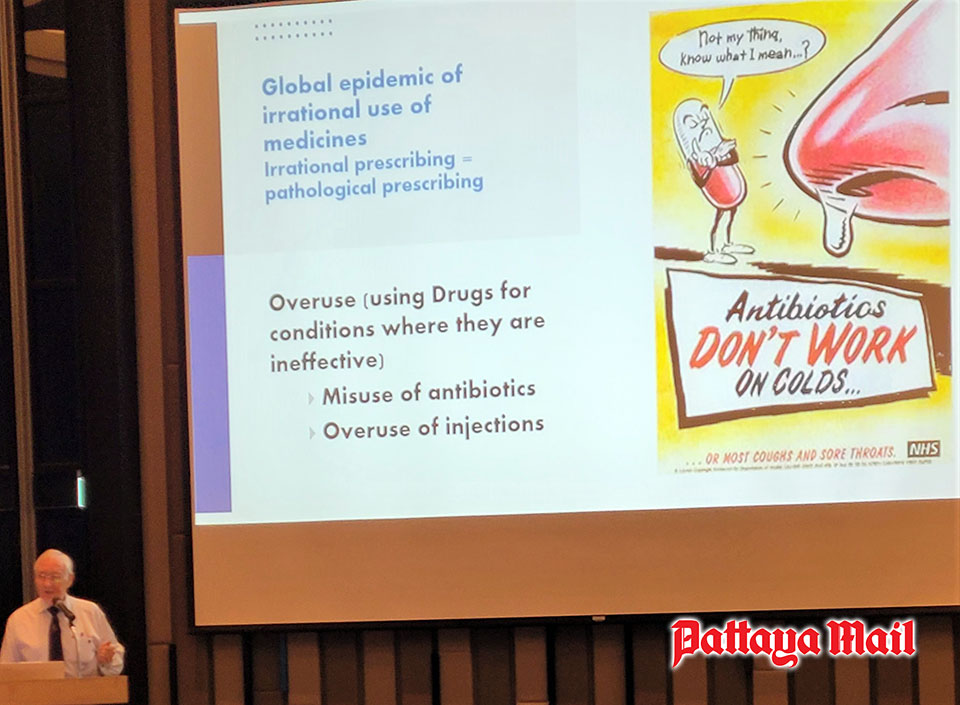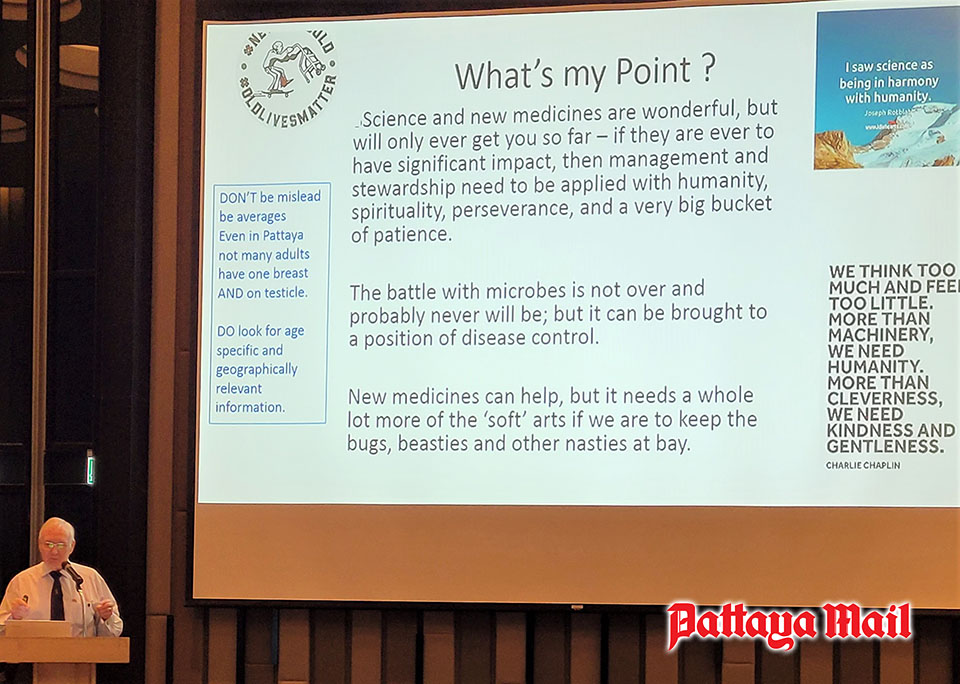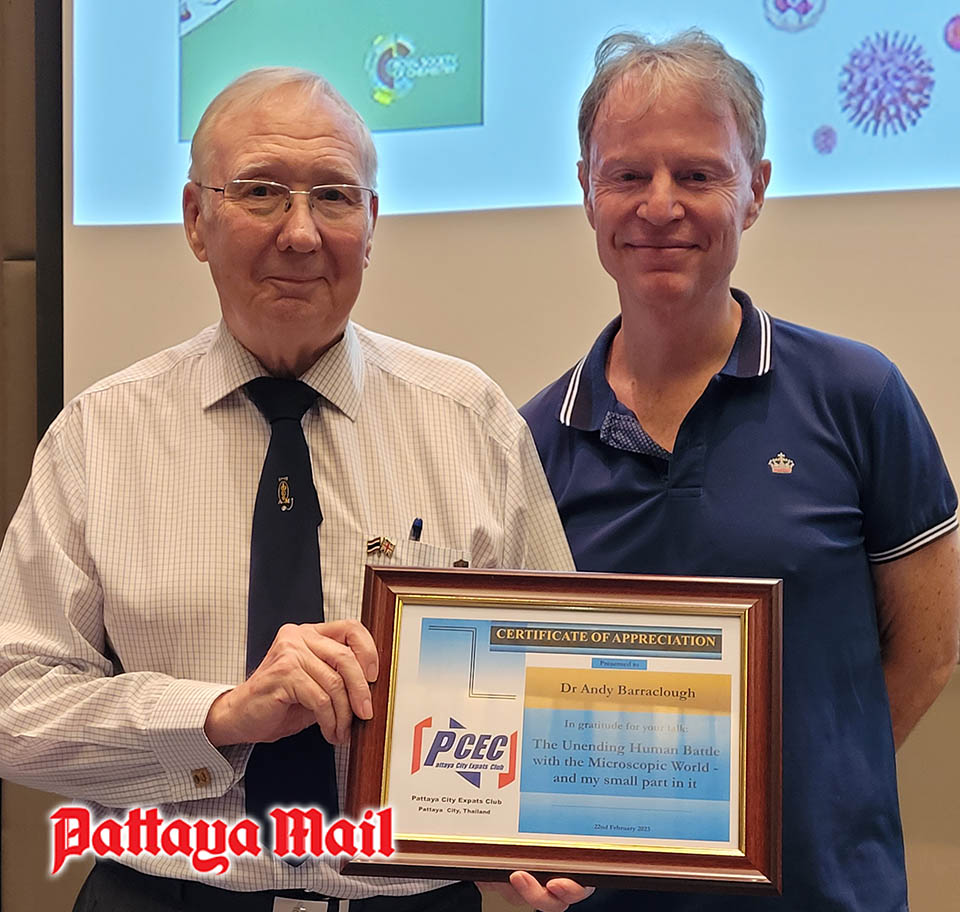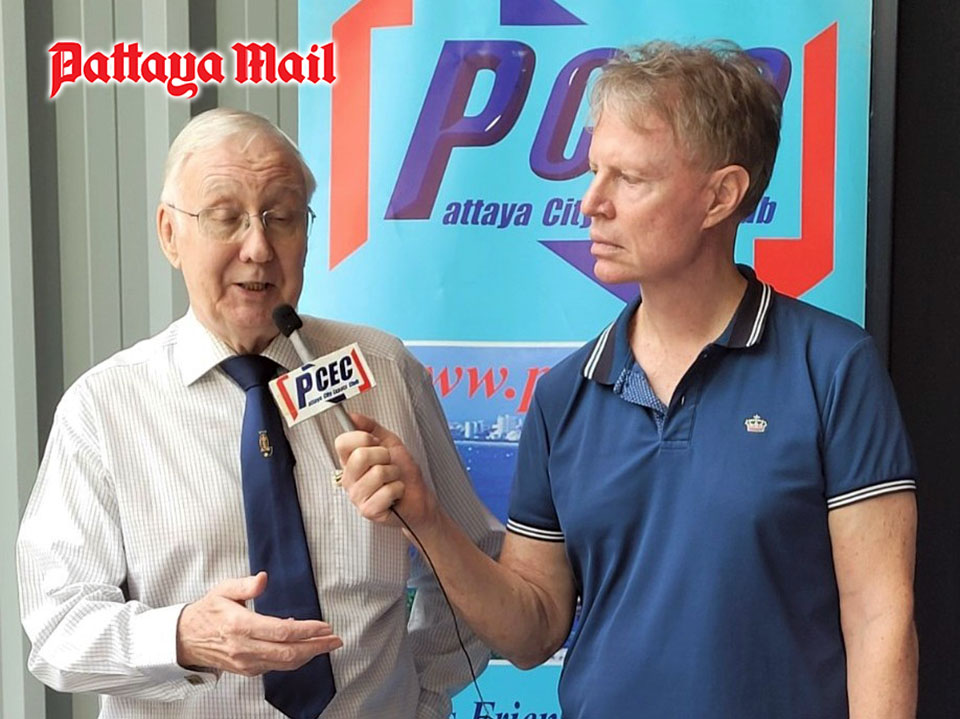
The Pattaya City Expats Club again welcomed Professor Andy Barraclough back for another interesting and informative talk on health matters at their Wednesday, February 22, meeting. He has given several such talks including on the topics of TB, Dengue Fever, and Covid, Covid and Covid and more recently Monkey Pox. This time, it was about the unending human battle with the microscopic world.
He is the Professor of Public Health and Director of Training at the Empower School of Health – a World Health Organization cooperating center. He has over 30 years of experience of working in low- and middle-income countries – mainly in SE Asia. The main focus of previous experience includes effective management of pharmaceuticals, vaccines and medical commodities, and especially the implementation of programs for the introduction of new medicines and rapid diagnostics for Neglected Tropical Diseases.
Professor Andy began with his usual disclaimer about not being a medical doctor and stating that all should rely on a medical professional for diagnosis and treatment. He said you should always seek the advice of your physician or other qualified health provider with any questions you may have regarding a medical condition.

He noted that there has been a significant reduction in the burden from communicable, neonatal, maternal, and nutritional diseases in recent decades. This may lead to a belief that the battle against the microscopic world is being won. But that is not the case. It is no longer infectious diseases that are the prime killers – instead it’s Non-Communicable Diseases. Further, some Diseases are on the increase, such as tuberculosis and sexually transmitted infections. Additionally, there are new emerging diseases. One of these is in Thailand, it is the Nipah virus that causes encephalitis and has a greater than 75% mortality rate. Climate change also increases the risk for health threats.
Professor Andy then asked, what does it mean? He answered with it means the battle between human health and the microscopic world is far from over. ‘Old’ diseases are re-emerging, new diseases are emerging, climate change is driving different disease patterns, and resistance to medicines is increasing, and they are becoming less effective.
He notes that traditionally, the battle between Human Health and the Microbial World has been depicted as a race of the ingenuity of man applying the ‘white heat of a technological revolution’ against the mutation and rapid adaption of microbes. A myth given modern credence by the apparently rapid development of the Covid vaccines and anti-viral treatments.

But, regrettably, he explained that the reality of the battle with microbes is rather different and involves far less technology and far more mundane and basic management and medical practices. Further, that, despite the hype of hi-tech medicines, the battle is more akin a situation where humans are still trying to use the equivalent of bows and arrows, against an ever-evolving army of billions upon billions; and that the current approach of just constantly inventing improved types of arrows is not going to be enough to win. He believes it needs a complete Global battlefield strategy, and perhaps surprisingly, one that involves in large measure, equality, and humanity, together with a back to basics of serious management and organization, and fundamental medical practices.
Medicines shortages have also become a complex global issue, putting lives at risk, and creating difficulties for health care professionals. As a result, there is a growing concern among health care professionals about the future of medicines availability worldwide.
He said the battle with microbes is not over and probably never will be; but he believes it can be brought to a position of disease control. New medicines can help, but it needs a whole lot more of the ‘soft’ arts if we are to keep the bugs, beasties and other nasties at bay.

He also discussed vaccines and measures you as individuals should consider regarding their needs. His emphasis being that you are responsible for your health; you can’t expect a government or hospital to be in charge. What vaccinations you may need is specific to you the individual depending on your medical history and current condition. He mentioned that individual consultations with a doctor on the subject is available at the Tropical Travel Clinic associated with the Mahidol University. After consultation, they can also provide the vaccinations you may need at less cost than you would be charged by most private hospitals [https://www.thaitravelclinic.com/].
MC Ren Lexander than mentioned some upcoming events before calling on George Wilson to conduct the Open Forum portion of the meeting where the audience comment and ask questions about Expat living in Thailand. To learn more about the PCEC, visit their website at: https://pcec.club. To view Professor Andy’s presentation, visit the PCEC’s YouTube Channel video at https://www.youtube.com/watch?v=MKjoFiMff_o.






